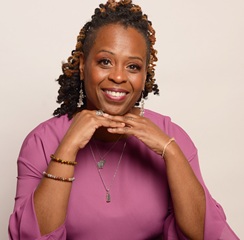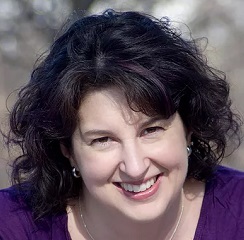Overview
A Two-Week Online Course
Quite often, issues with a story in progress can be traced back to its beginning. In this course, Alicia D. Williams, Erin Dionne, and Chris Tebbetts will explore how your first pages and early choices can kickstart your chapter book, middle grade novel, or young adult novel, and help you navigate the rest of the writing process. It will be a productive month online packed with first page reviews, revisions, writing exercises, and interactive lectures.
- Live Lectures (with closed captioning, and recorded for those who cannot attend live): Thursday, February 9 (7pm – 9pm Eastern), Thursday, February 16 (7pm – 9pm Eastern), Thursday, February 23 (7pm – 9pm Eastern)
- Presentations and hands-on exercises to help you craft a strong beginning to your chapter book or novel, with time to work independently on your draft.
- Optional post-course critique (at an additional cost) for written feedback on your first chapter.
- 30 participants max
Why This Workshop?
What promise are you making to the reader on page one of your chapter book, middle grade, or young adult novel?
Quite often, issues with a story in progress can be traced back to its beginning. In this course, Alicia D. Williams, Erin Dionne, and Chris Tebbetts will explore how your first pages and early choices can kickstart your chapter book, middle grade novel, or young adult novel, and help you navigate the rest of the writing process.
It will be a productive month packed with first page reviews, revisions, writing exercises, and interactive lectures.
During our live sessions, you will discover:
- The promise of a strong beginning
- Setting the voice to sustain through your project
- Tools for plot and pacing
- How to set yourself up for finishing your first draft or revision
Participants will be asked to submit the first page from a work in progress prior to the workshop. You’ll workshop this submission during the course and use it as a basis to share during peer and informal feedback. Some submissions will be used as examples during class exercises, all will be discussed in small groups.
During the weeks between the presentations, we hope that you will set aside independent time to work on your draft and the writing exercises.
Feedback Expected
- Informal: You will create during the course. Opportunities to share in the virtual classroom and/or during your peer group meeting will allow for informal discussion.
- You can also participate in first pages discussions led by faculty for all those who attend live.
- Optional post-course critique (at an additional cost): This critique includes written feedback on your opening chapter (up to 10 pages). Written feedback will be provided within 4 – 6 weeks of submission. Cost for this critique is $100. Details we be shared during the final class.
It’s a Great Fit For…
- Chapter book writers, middle grade, & YA writers.
- Beginners. If you’re eager to write your story, this workshop will explore ways to kickstart your ideas into a book-length project.
- Experienced writers who are working on or struggling with a new story and you want to begin again with support, community, and accountability.
- Those who like the structure of a short course with time to work on your own draft in between sessions. You’ll have time to implement some of your learning and offer your work to fellow writers who can give informal feedback and encouragement.
- Anyone who likes the flexibility of online programs with recordings available for at least 30 days following the course.
Detailed Agenda
All Times are Eastern Standard Time.
Pre-Workshop
- One week prior to your course, you will receive a link to our virtual classroom where you can introduce yourself to fellow writers, and engage in Highlights Foundation related resources (including our Community Standards).
- Participants will be asked to submit the first page from a work in progress prior to the workshop. You’ll workshop this submission during the course and use it as a basis to share during peer and informal feedback. Some submissions will be used as examples during class exercises, all will be discussed in small groups.
Part 1: The Promise of a Good Beginning
Thursday, February 9, 7pm – 9pm Eastern
- Welcome with introductions including one line from your WIP
- Opening writing exercise
- Mini-lesson: Deep Point of View
- Revise: Workshop your submitted page in real time with breakout rooms
- Q & A
In the virtual classroom
- Share revised opening pages in preparation for Part 2
- Ask questions and share reflections
Part 2: Workshopping First Pages and VOICE!
Thursday, February 16, 7pm – 9pm Eastern
- Small group sharing of first pages: faculty facilitated
- Word choice, tone, and personality
- Homework: Analyze voice in your opening, and in self-selections
In the virtual classroom
- Optional, share additional revised openings (after group sharing, and voice session)
- Share analysis of self-selections
- Ask questions and share reflections
Part 3: Setting the Pace for Your Project (and Yourself)!
Thursday, February 23, 7pm – 9pm Eastern
- Discussion: Where are you stuck: in the story and in making progress?
- Grounding Your Reader in Your World (From Page One)
- Pacing considerations (tension, plot/theme, and you!)
- Open Q & A
In the virtual classroom
- Optional post course critique information
Throughout the Workshop
- Access to handouts and resources in the virtual classroom
- Book list of all titles mentioned in the course
- Interaction with fellow writers and faculty
Post-Course Critique Opportunity (At an Additional Cost)
Optional post-course critique (at an additional cost): This critique includes written feedback on your opening chapter (up to 10 pages). Written feedback will be provided within 4 – 6 weeks of submission. Cost for this critique is $100. Details we be shared during the final class.
Commitment Required for the Best Experience
This course is best if you attend or watch all lectures. We recommend setting aside time to try the homework so that you can participate in the small group discussion during Part 2 of the program. (Note: If your schedule does not allow you to attend the live sessions and you would still like to register, that’s OK! You’ll have access to the recordings with closed captioning. They’re posted the day after the session, and they’ll be available through March 31, 2023.)
The Highlights Foundation strives for a safe and inclusive environment. You will have access to our Community Standards prior to the workshop where we ask for your respectful engagement with fellow creatives, including our faculty and staff.
How It Impacts Kids
Your book can be a meaningful experience for the children and young adults who read it. This course helps you identify the promises you are making to your readers on page one and offers ways of making sure you deliver on those promises, all the way to the end of the story.
Testimonials from Our Community
“The knowledge shared was invaluable. I’m thankful to the speakers and to Highlights Foundation for these presentations. I feel a lot further along in my writing journey because of it already.”
“So many things were useful and will help with my writing process. Promises made in the beginning pages must be honored. Also a great tip was how to detect forward movement vs. lateral and backward movement.”
Resources
- TeachingBooks.Net Resources from Alicia D. Williams
- See what Erin Dionne thinks is the hardest part about writing a good beginning. Hint: She once cut 72 pages off the beginning of her novel in a revision.
- Hear about the time Chris Tebbetts learned something new by re-reading the first page of his book: “There’s something in those currants, isn’t there?” “There is now!”
- Blog post from Erin Dionne on beginnings: Promises, Promises
- Blog post from Chris Tebbetts: Beginning a Novel: The Secret is, There is No Secret
- Blog post from K.L. Going: Is Your Novel Opening as Strong as It Could Be?
- Blog post from Chris Tebbetts: Visual Outlining





